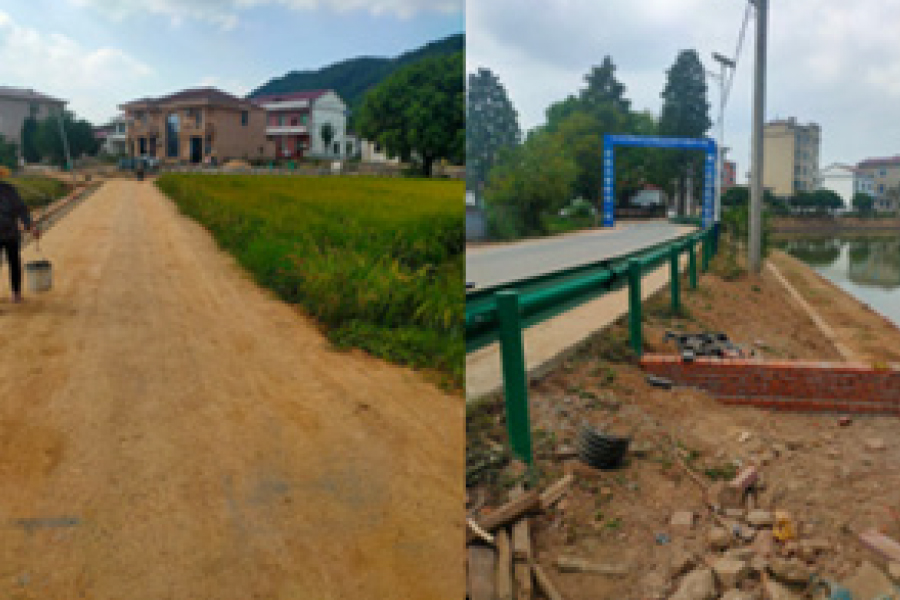
Radar | May 15,2021
Feb 4 , 2023
By Zhang Jun, dean
Chinese bank deposits increased by 3.9 trillion dollars last year, according to recent data from China’s central bank, the People’s Bank of China (PBOC). Spurred by China’s rigid COVID-19 containment strategy, which the government rolled back in December, household savings surged by 6.6 trillion in 2022, growing by more than 746.2 billion in the last two months of the year alone.
To many Western economists and analysts, these “excess savings” represent pent-up demand that could lead to a wave of "revenge spending" this year and drive the global economic recovery. But while China is expected to experience a recovery in consumption this year, its households will likely maintain a higher level of precautionary savings over the long term.
The increase in Chinese household savings last year is unusual and reflects consumers’ inability to spend due to China’s strict zero-COVID lockdowns, which forced millions to remain indoors, sometimes for months at a time. Now that China has abandoned the policy, the floodgates have opened, and it stands to reason that much of these forced savings would spill out, lifting consumption higher.
But not all of the excess savings reflect suppressed consumer spending.
A very large proportion of the increase in deposits reflects what households choose to save as a precaution. Chinese households save mainly on housing and financial investment, and last year they delayed home purchases and pulled out of the stock market and other underperforming financial assets to keep their money in bank deposits. According to several estimates, housing purchases declined by roughly 600 billion dollars in 2022, mainly owing to investors’ expectations of a sustained economic downturn.
Even if consumer spending could return to normal this year, heightened uncertainty will most likely prevent Chinese families from putting their hard-earned savings into housing or stocks; bank deposits will remain higher.
A PBOC household survey, conducted during the third quarter of last year, shows that Chinese households are still inclined to save.
Only 22.8pc of respondents said they would like to buy more things, compared to 58.1pc who said they would like to increase their savings and 19.1pc who said they would like to invest more. In part, this reflects the longstanding propensity of China’s population, as two decades of strong income growth have had little impact on households’ saving rates. But it also reflects ongoing wariness about the economy, with Chinese households – already struggling to deal with the rising costs of housing, education, and healthcare – seeming to play it safe and prepare for a rainy day.
Chinese policymakers must acknowledge the risk that excess savings pose for the country’s economic development and address the cost-of-living crisis that makes Chinese consumers reluctant to spend. While China has made great progress in rebuilding its social security system over the past 30 years, it has yet to provide its citizens with a level of protection commensurate with its economic strength. Even in major cities like Beijing and Shanghai, where household incomes are relatively high, residents still struggle to afford exorbitant housing, healthcare, education, and eldercare costs.
To encourage savers to spend again, China must first make housing more affordable in major cities. Building an adequate supply of government-provided public housing and long-term rentals in urban areas, and ensuring that these apartments and homes meet high safety and quality standards across the country, could disincentivize household saving and encourage more current consumption, especially among younger people.
Apart from affordable housing, providing financial support to families through welfare programs is crucial to restoring consumer confidence. Chinese policymakers must redesign the government's fiscal spending to minimize the heavy burden on households struggling to pay for their basic needs. Increasing social protections and offering more welfare benefits for low- and middle-income families could lead to higher spending and a more sustainable development path for the next decades.
But without a major overhaul of its fiscal policy and tax system, excessive household savings could severely impede China’s long-term economic prospects. In recent decades, the Chinese government has relied on an investment-led, credit-fueled growth strategy to boost aggregate demand and offset sluggish consumption. But the government’s adherence to this strategy over the past decade has inevitably helped to create a speculative property bubble that made housing unaffordable for many and contributed to the country’s ongoing economic slowdown.
It is not too late to change course. China’s economy has reached a pivotal point.
The government has the resources and capacity to implement fiscal and welfare policies targeting families rather than industries and to make such a fiscal system compatible with healthy long-run economic development. But first, it must take immediate steps to increase social protection and welfare spending for its low- and middle-income families. If Chinese policymakers spend more on households, they will find that households are more willing to spend.
PUBLISHED ON
Feb 04,2023 [ VOL
23 , NO
1188]


Radar | May 15,2021

Commentaries | Jan 09,2021

Viewpoints | Oct 22,2022

Agenda | Aug 27,2022

Advertorials | Jul 14,2025

Viewpoints | Apr 22,2023

My Opinion | Mar 18,2023

Sunday with Eden | Sep 10,2021

Agenda | May 20,2024

Sunday with Eden | May 04,2019

Photo Gallery | 179532 Views | May 06,2019

Photo Gallery | 169728 Views | Apr 26,2019

Photo Gallery | 160657 Views | Oct 06,2021

My Opinion | 137188 Views | Aug 14,2021
Commentaries | Oct 25,2025

Dec 22 , 2024 . By TIZITA SHEWAFERAW
Charged with transforming colossal state-owned enterprises into modern and competitiv...

Aug 18 , 2024 . By AKSAH ITALO
Although predictable Yonas Zerihun's job in the ride-hailing service is not immune to...

Jul 28 , 2024 . By TIZITA SHEWAFERAW
Unhabitual, perhaps too many, Samuel Gebreyohannes, 38, used to occasionally enjoy a couple of beers at breakfast. However, he recently swit...

Jul 13 , 2024 . By AKSAH ITALO
Investors who rely on tractors, trucks, and field vehicles for commuting, transporting commodities, and f...

Oct 25 , 2025
The regulatory machinery is on overdrive. In only two years, no fewer than 35 new pro...

Oct 18 , 2025
The political establishment, notably the ruling party and its top brass, has become p...

Oct 11 , 2025
Ladislas Farago, a roving Associated Press (AP) correspondent, arrived in Ethiopia in...

Oct 4 , 2025
Eyob Tekalegn (PhD) had been in the Governor's chair for only weeks when, on Septembe...

Oct 25 , 2025 . By YITBAREK GETACHEW
Officials of the Addis Abeba's Education Bureau have embarked on an ambitious experim...

Oct 26 , 2025 . By YITBAREK GETACHEW
The federal government is making a landmark shift in its investment incentive regime...

Oct 29 , 2025 . By NAHOM AYELE
The National Bank of Ethiopia (NBE) is preparing to issue a directive that will funda...

Oct 26 , 2025 . By SURAFEL MULUGETA
A community of booksellers shadowing the Ethiopian National Theatre has been jolted b...